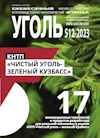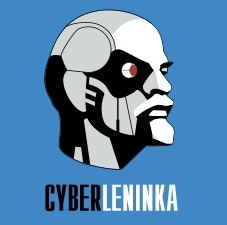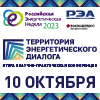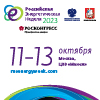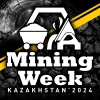
ECONOMIC OF MINING
Original Paper
UDC 330.47 © L.N. Shcherbakova, E.K. Evdokimova, E.A. Fedulova, 2023
ISSN 0041-5790 (Print) • ISSN 2412-8333 (Online) • Ugol’ – Russian Coal Journal, 2023, № 4, pp. 79-83
DOI: http://dx.doi.org/10.18796/0041-5790-2023-4-79-83
Title
POSSIBILITIES FOR "NON-GREEN" DECARBONISATION IN THE ENERGY SECTORS
Authors
Shcherbakova L.N.1,Evdokimova E.K.1, Fedulova E.A.1
1Kemerovo State University, Kemerovo, 650000, Russian Federation
Authors Information
Shcherbakova L.N., Doctor of Economic Sciences,Professor of the Department of Economic Theory and Public Administration,e-mail: ludmilashc@yandex.ru
Evdokimova E.K., PhD (Economic), Associate Professor of the Department of Economic Theory and Public Administration, e-mail: elena_evdokimova@inbox.ru
Fedulova E.A., Doctor of Economic Sciences,Head of the Department of Economic Theory and Public Administration,e-mail: fedulovaea@mail.ru
Abstract
This article proves that there is a variant of decarbonization of energy industries that is not associated with the use of an alternative, "green" economy. It corresponds to countries rich in resources, including the Russian economy, their option for reducing the negative impact on the environment is to reduce energy consumption in the economy. The article analyzes the following ways to achieve this goal. In accordance with the concept of the "circular economy", lean production is considered as one of the ways to reduce energy consumption, and attention is also paid to building business models focused on the reuse of resources, waste recycling. As part of the search for new forms of management, new management models, diversification of production has been allocated, which is based on the rejection of narrow specialization and the growth of efficiency due to the formation of new structures or functions of the enterprise. Particular importance is given to the digital transformation of the electric power industry, since it provides ample opportunities for saving resources by accelerating the speed and improving the quality of information, new production management capabilities, and the use of fundamentally new devices and tools.
Keywords
Electric power industry, Diversification of production, Direct vertical, Reverse vertical, Horizontal diversification, Digital services.
References
1. Development of decarbonisation programmes in Russia: from theory to practice. Available at: https://presscentr.rbc.ru/tpost/s54me64xm1-razvitie-programm-dekarbonizatsii-v-ross (accessed 15.03.2032). (In Russ.).
2. Beyond the power industry: stimulating decarbonisation through the circular economy. Available at: http://decarbonization.ru/news/analitycs/za-gran-iu-energii-stimulirovanie-dekarbonizatcii-cherez-tcirkuliarnuiu-ekonomiku/ (accessed 15.03.2032). (In Russ.).
3. Andreyev M. & Polbin A. Monetary Policy for a Resource-Rich Economy and the Zero Lower Bound. Economicheskaya politika, 2022, Vol. 17 (3), 44-73.
4. On the current state and protection of the environment in the Russian Federation in 2021. State Report. Moscow, Ministry of Natural Resources and Environment of the Russian Federation, Lomonosov Moscow State University, 2022, pp. 221. (In Russ.).
5. Kim J.-S. & Kang J. Exploring the Top-Priority Innovation Types and Their Reasons. Foresight and STI Governance, 2022, (16), pp. 6–16. DOI: 10.17323/2500-2597.2022.3.6.16.
6. Razzak M.R., Al-Riyami S. & Palalic R. () Organizational Meta Capabilities in the Digital Transformation Era. Foresightand STI Governance, 2022, (16), pp. 24–31. DOI: 10.17323/2500-2597.2022.4.24.31.
7. Shcherbakova L.N.,Evdokimova E.K. & Fedulova E.A.Digital contribution of the energy complex to diversification and green initiatives. Ugol’, 2022, (S12), pp. 11-15. (In Russ.). DOI: 10.18796/0041-5790-2022-S12-11-15.
8. What is made from coal? Available at: https://mr-build.ru/newteplo/cto-proizvodat-iz-ugla.html (accessed 15.03.2032). (In Russ.).
9. Shabashev V.A. & Shcherbakova L.N. Trends of digital equality / inequality in present-day world. Sothis, 2016, (9), pp. 3–12.
10. Evdokimova E., Shcherbakova L., Zobova L. & Savinseva S. Features of information technologies influence on social development. Advances in Social Science, Education and Humanities Research, 2018, (198), рр. 70-75.
11. Turovets Yu.V., Proskuryakova L.N. & Starodubtseva A. Green digital transformation in the electrical energy sector. Forsajt, 2021, Vol. 15, (3), pp. 35–51. (In Russ.).
12. Adeyemi A., Yan M., Shahidehpour M., Botero C., Guerra A.V., Gurung N., Zhang L. & Paaso A. Blockchain Technology Applications in Power Distribution Systems. The Electricity Journal, 2020, (33), 106817. Available at: https://doi.org/10.1016/j.tej.2020.106817(accessed 15.03.2032).
13. Rocha D., Araujo G.L.V. & Melo F.C.L. Maturity Assessment of Critical Technologies. Foresightand STI Governance, 2022, (16), pp. 71–81. DOI: 10.17323/2500-2597.2022.4.71.81
14. Geliskhanov I.Z., Yudina T.N. & Babkin A.V. Digital platforms in Economics: essentials, models, development trends. Nauchno-tehnicheskie vedomosti Sankt-Peterburgskogo gosudarstvennogo politehnicheskogo universiteta. Ekonomicheskie nauki, 2018, Vol. 11, (6), pp. 22-36. (In Russ.). DOI: 10.18721/JE.11602.
Acknowledgements
The research performed under Agreement No. 075-15-2022-1195 dated 30.09.2022, signed between the Ministry of Science and Higher Education of the Russian Federation and the Federal State Budgetary Educational Institution of Higher Education Kemerovo State University
For citation
Shcherbakova L.N.,Evdokimova E.K. & Fedulova E.A.Possibilities for "non-green" decarbonisation in the energy sectors. Ugol’, 2023, (4), pp. 79-83. (In Russ.). DOI: 10.18796/0041-5790-2023-4-79-83.
Paper info
Received February 20, 2023
Reviewed February 28, 2023
Accepted March 27, 2023


